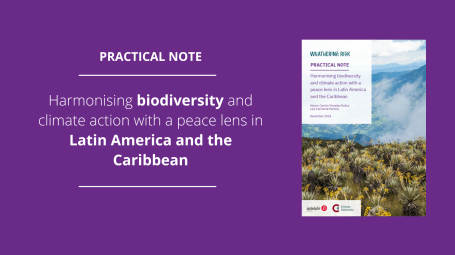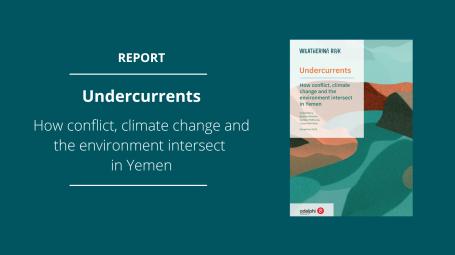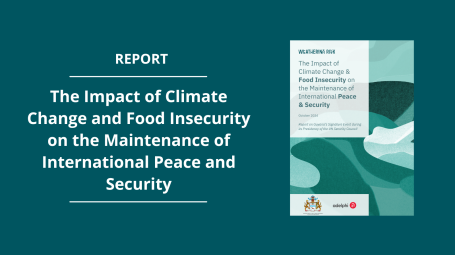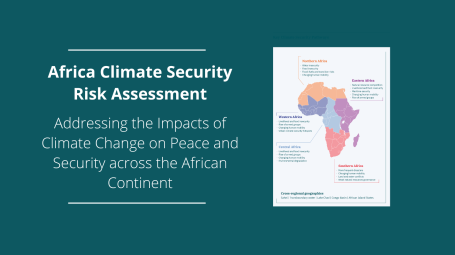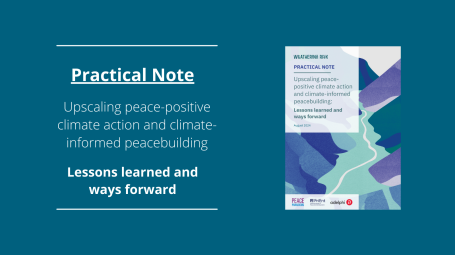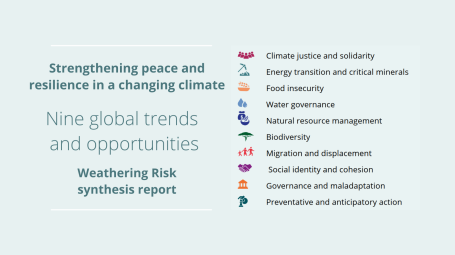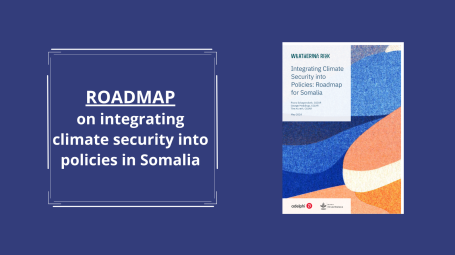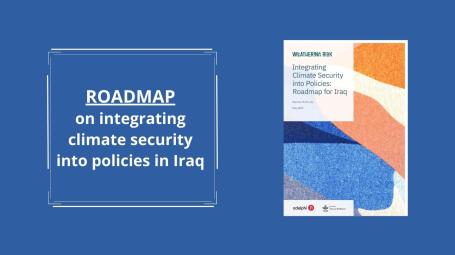-
Harmonising biodiversity and climate action with a peace lens in Latin America and the Caribbean
Biodiversity conservation plays a crucial role in addressing the challenges climate change and environmental degradation pose to human security and peace. This practical note explores how these agendas intersect in Latin America and the Caribbean, one of the world's most biodiverse regions. The document summarises the discussions held at BCSC-Cali during the past UN Convention on Biological Diversity (COP 16) in Colombia, including key highlights and priority action areas for various stakeholders. -
Undercurrents: How conflict, climate change and the environment intersect in Yemen
Undercurrents examines the complex relationship between war, increasing climate-related hazards and environmental degradation in Yemen that are undermining security and driving further conflict, particularly at the local level. Undertaken in collaboration with the European Institute of Peace, the assessment highlights why climate and environmental action must be part of Yemen’s conflict mitigation and peacebuilding processes at different levels. -
The Impact of Climate Change & Food Insecurity on the Maintenance of International Peace & Security
Conflict, climate extremes and economic shocks are fueling an unprecedented food crisis. This report summarises the UNSC High-level Open Debate on climate change, food insecurity and the maintenance of international peace convened by Guyana. It dispells common myths and proposes operative measures for the wider UN system, international organisations, Member States and civil society. -
Ukraine: Reframing the Narrative of Climate, Environmental Degradation and Conflict
This report examines the interplay between the ongoing war in Ukraine, climate change and environmental degradation, and their collective impact on humanitarian needs. It outlines current responses and proposes strategies for humanitarian actors, donors and policymakers to integrate climate and environmental considerations into their interventions in Ukraine. -
Africa Climate Security Risk Assessment
The Africa Climate Security Risk Assessment (ACRA) is the first comprehensive study of climate security across Africa. It identifies climate security pathways across the African Union’s five regions and explores responses, good practices and recommendations, in order to inform the first Common African Position on climate change, peace and security. -
Upscaling peace-positive climate action and climate-informed peacebuilding: Lessons learned and ways forward
Currently, 90% of climate finance targets middle-income, high emission-producing countries leaving conflict-affected regions underfunded and vulnerable. This practical note captures 8 key takeaways on peace-positive climate action and climate-informed peacebuilding and provides recommendations for multilateral and bilateral donors, policy-makers and practitioners. -
Strengthening peace and resilience in a changing climate: Nine global trends and opportunities
The Weathering Risk synthesis report identifies nine pressing global climate security trends and opportunities based on 43 case studies, assessments, mapping exercises and scenario-based analyses produced during the first phase of Weathering Risk. -
Integrating Climate Security into Policies: Roadmap for Somalia
This roadmap outlines the urgent challenges and strategic directions necessary for integrating climate security into Somalia's policy landscape. It proposes actions for Somali authorities and their international partners to ensure Somalia can access essential resources to address climate-related security challenges and achieve policy goals. -
Integrating Climate Security into Policies: Roadmap for Iraq
This roadmap identifies the urgent challenges and strategic directions necessary for integrating climate security into Iraq's policy landscape. It proposes actions for Iraqi authorities and their international partners to ensure Iraq accesses essential resources to address climate-related security challenges and achieve policy goals.


